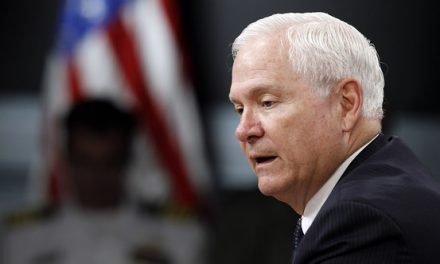by DAN MCLAUGHLIN, National review
Negative public perception weighs on Republicans, who have already suffered political losses. ‘Just the policy, ma’am’ is not how democracies work. Yesterday I reviewed the top ten reasons for conservatives to be happy with the first year of the Trump presidency.
But there’s a price to be paid, too. Let’s review the top ten lowlights of Trump’s first year. While the good news is mostly on the policy front, the bad news is predominantly in the areas of politics and perception — but anyone who understands American democracy knows that losing the political battle has dire consequences for policy. “Just the policy, ma’am” is not how democracies work, or how any American president can successfully govern for long.
Even before we get to the question of how these things will affect Trump’s administration in the future, they already have. First: Oh, those tweets. Of all the problems with President Trump, the single largest remains his mouth and his thumbs. Over and over again, Trump has said or tweeted intemperate things: bashing the FBI, threatening news outlets, taunting Kim Jong- Un over his nuclear arsenal, humiliating his own cabinet secretaries. True, the lack of follow-up on most of these remarks — especially ones that sound like a man who just wishes he had some power over the government — suggests that Trump is not really serious half the time.
But that, too, degrades his influence as president; presidential credibility has far less to do with the president’s truthfulness than with his reputation for following through on his promises and threats. And truthfulness, too, has been a frequent victim, as Trump and his communications team so regularly peddle falsehoods large and petty that it’s simply impossible to place any store on anything they say. Everything else on this list is at least in part a consequence of Trump’s recurring habit of acting out when he has a microphone or a Twitter audience. Second: Obamacare lives.
The largest policy failure of the past year is the GOP’s inability to dismantle any part of Obamacare besides the individual mandate, after Paul Ryan, Mitch McConnell, Trump, and the rest of the party had campaigned against it for the past seven years. As I’ve written before, this is a defeat with many fathers, but Trump bears blame on several levels: first, because his campaign never built support for a plan but instead convinced Hill Republicans that there was no likelihood of needing one because Hillary would beat him; second, because Trump pressured Ryan and McConnell to delay an Obamacare-repeal vote until a replacement was ready, rather than repeal the old system to force everyone to the table to design a new one; and third, because his lack of public credibility or presidential leadership left the congressional caucuses to fend for themselves without a meaningful bully pulpit to counter the likes of Jimmy Kimmel. Third: Demoralized Republicans.
The first tangible trouble sign of Trump’s impact on the party is the unusually high number of congressional Republicans retiring in 2018 and the struggles the party has faced in candidate recruitment. How much these difficulties play out in election losses remains to be seen, but there are real, present costs: retiring senators Jeff Flake and Bob Corker, for example, feel less compelled to play ball with the president’s legislative agenda and to defend his administration, and retirements have a cascading effect on fundraising and encouraging the other side. Of course, some of these discouraged Republican officeholders don’t want to run for reelection in a tough environment, but others would probably have retired in 2016 if they had expected Trump to win and run Washington, and are retiring because being part of Trump’s party is a miserable experience.
Perception in politics is a reality all its own, and the perception of White House chaos and electoral impending doom is important regardless of its basis in fact, in addition to being a self-fulfilling prophecy. Fourth: Locker-room material and election losses. Republicans at the congressional level have yet to really feel the bite of a public backlash against Trump, outside the Alabama Senate race, and while Roy Moore’s loss is part of the broader story of the Trump phenomenon, it’s hard to lay at the feet of Trump himself: He followed Mitch McConnell’s lead in endorsing Luther Strange over Moore in the primary, then doggedly supported Moore in the general election well past the point of its being politically prudent or morally justifiable to do so.
But trouble for Republicans is not just a matter of polling, which can always be in error: It’s already had electoral consequences. Republicans entered 2017 holding a 66–34 majority in the Virginia House of Delegates and ended up clinging to control by one seat, on the basis of a race decided literally by drawing names out of a hat when the vote was tied.
Republicans lost control of the Washington state senate, their only bulwark against leftist control of that state, lost county seats across Nassau and Westchester Counties in New York, lost the New Jersey governorship (granted, a lost cause anyway, owing only in part to Chris Christie’s disastrous 2016 endorsement of Trump), and recently lost a bellwether state-senate district in northwest Wisconsin.
A common thread throughout these races has been higher Democratic turnout than we saw during the Obama era except when Obama was on the ballot — black voters, for example, turned out in enthusiastic numbers for the Alabama Senate race, while white Republican turnout was depressed.
By and large these are not issue-oriented voters, but they respond on a tribal us-versus-them level to vote against Trump in the way they did when voting for Obama. The reason is that Trump keeps giving them what football teams call “locker-room material”: inflammatory quotes and actions that make it very easy to motivate even marginal members of the opposition to throw everything they have at you. Even before we get to what lies ahead, that’s already been a costly phenomenon for down-ticket Republicans.
Fifth: Political weakness: One of the most striking signs of how weak Trump is already, compared with prior first-term presidents, is that he has almost no ability to bring public pressure to bear on members of the opposing party whose constituents supported him in 2016. Eleven Senate Democrats represent states Trump won, and ten of those are scheduled to face the voters in 2018. Yet not a single Senate Democrat voted for his tax or health-care proposals, and only three — Joe Manchin (W.Va.), Joe Donnelly (Ind.), and Heidi Heitkamp (N.D.) — voted for Gorsuch, even at the beginning of Trump’s tenure. Claire McCaskill (in a state where Trump won 56.4 percent), Jon Tester (Trump, 55.7 percent), and Sherrod Brown (Trump, 51.3 percent) have felt no apparent pressure to play ball with Trump. Perspective: At the opening of 2009, ten Republican senators represented states won by Obama. One, Pennsylvania’s Arlen Specter, switched parties.
A second, New Hampshire’s Judd Gregg, tried to join Obama’s cabinet, only to be thwarted by Obama’s arch-partisan governing style; Gregg retired at the end of his term, as did Ohio’s George Voinovich. Two others, Nevada’s scandal-plagued Jon Ensign and Florida’s Mel Martinez, quit the Senate during 2009. Maine’s Olympia Snowe ultimately retired rather than face reelection in 2012, and Indiana’s Dick Lugar (in a state Obama won by a fluke and wouldn’t even contest in 2012) was successfully primaried in 2012.
Only three of the ten — Richard Burr (N.C., another state Obama would lose in 2012), Chuck Grassley (Iowa), and Susan Collins (Maine) — would ever win another election. Aisle-crossing on major votes has been in decline, especially for the past two decades, but even given how historically poorly Obama fared in midterm elections, at least most of the Obama-state Republicans recognized that opposing Obama was a cost-free move only if they weren’t facing the voters again.
By contrast, Democrats flout Trump without fear of electoral consequences even before a midterm vote has been cast. This has immediate consequences for his ability to govern, and it is only likely to get worse. Sixth: Racial division. For the past half-century, at least, Democrats have accused Republican leaders of racism on the flimsiest of pretexts. That cynical strategy, coming from the party that dined out on open racism for the preceding century, has paid dividends in the form of far higher rates of racially polarized voting among non-white voters among than white voters . . . until Trump. Whether or not you think Trump is a racist as you define the word — a word of many definitions to many different people — he’s at least glaringly insensitive to how he’s perceived by non-white people.
His worst moments as president, like his worst moments as a candidate, have often involved race, ranging from his fumbling efforts at addressing white-supremacist violence in Charlottesville to his reference to Haiti and African countries as “s***holes” that produce inferior immigrants compared with those of, say, Norway. After decades of crying wolf, the Democrats finally have a wolf. The resulting burden of mistrust is already apparent in election returns and will hamstring Republicans for a generation. But it’s not just bad politics: Combined with Trump’s overall posture of constant tribal and cultural conflict, it corrodes the moral foundation of the Party of Lincoln.
The “s***holes” comment, moreover, weakens America’s national moral standing in the world, to no good purpose. For my part, I’d also put Trump’s immigration policy in this bucket. I listed immigration on the positive side in part 1 of this column because Trump is making progress on things that even immigration moderates like me want to see — like taking the law more seriously — and because he’s pleasing the more hardline factions of the party.
But the vision of America as fundamentally an open-door society that will always have room for a cross-section of people looking to make a better life here is one that Trump and his team reject in ways that mere “enforce the law” conservatives would not. Seventh: Sex scandal: It’s not just race, either. The latest Trump sex scandal (a reported-in-detail affair with a former porn star not long after he married Melania) has been greeted mostly with yawns, only because it’s already widely accepted that the thrice-married Trump is a well-known philanderer who’s on record speaking of women in crude sexual terms well into his late middle age.
Conservatives are realist enough to recognize that sometimes leaders — even great ones — have feet of clay, and will overlook those flaws when offset by towering virtues. But the spectacle of the party being led by a man of such obviously low sexual mores, in a way that suggests he lacks a fundamental respect for women, is yet another unforced error that sets a bad example for our children, demoralizes Republican women, and energizes even marginally political women to see opposition to Trump as a personal cause.
Eighth: Corruption of the Right: Given the policy accomplishments of this administration and the things it can yet do, I blame nobody on the Right for taking the view that so long as Trump is in power, one may as well work with him to do good rather than join his opponents in doing harm. But the first two rules of working with Trump should still be to say nothing false and defend nothing indefensible. Far too many people in the conservative and Republican worlds have crossed one or both of those lines in attempting to defend Trump as a positive good rather than a necessary evil, and in so doing they have cheapened the currency of their principles for all time. The political Left, by its nature, is tribal and ends-justify-the-means.
That gives it some tactical and strategic advantages over the Right, but it also creates opportunities for the Right to be the adults in the room, protective of enduring ideas of right and wrong and responsibility. When the Right gives that away, it not only weakens its own ability to sell something different; it also abandons the entire field to cynicism and expediency. Ninth: Erosion of norms and respect for the rule of law: There’s a lot of unreasonable alarmism out there about Trump’s being some kind of dictator, but the damage he has been doing to the web of norms and respect for the rule of law that our system depends on is more gradual.
The constant rattling of the FBI’s cage, the musing about using government power against journalists, the myriad little ways that Trump’s businesses get tangled with the business of government, and, above all, the Clintonesque cynicism about what you can get people to believe — all of these things will be hard to expunge from our system, and from the Republican party, when Trump is gone from the scene. Moreover, they encourage a like response and worse from the other side: the “legal Resistance” — from judges determined to thwart Trump and apply a different set of rules to him from those they have applied to other presidents — and the constant bouts of insubordination from within the executive branch represent a decay of the crucial concept of a peaceful transition of power between the two parties.
If we lose that, we truly face an existential threat to popular sovereignty and republican government. Tenth: Propping up the Iran deal: Finally, back on the policy front, one major promise that Trump and most of his Republican competitors made in 2016 was to tear up Obama’s feckless Iran deal — yet a year later, Trump is still kicking that can down the road even as the mullahs reel under protests at home. Trump has been better on Iran than Obama was, which is the faintest praise imaginable, and he seems to have let go of the common mistake he initially shared with Obama: the idea that the Iran–Russia axis could be separated by American blandishments. But Trump has yet to undo all the harm done by his predecessor.



















